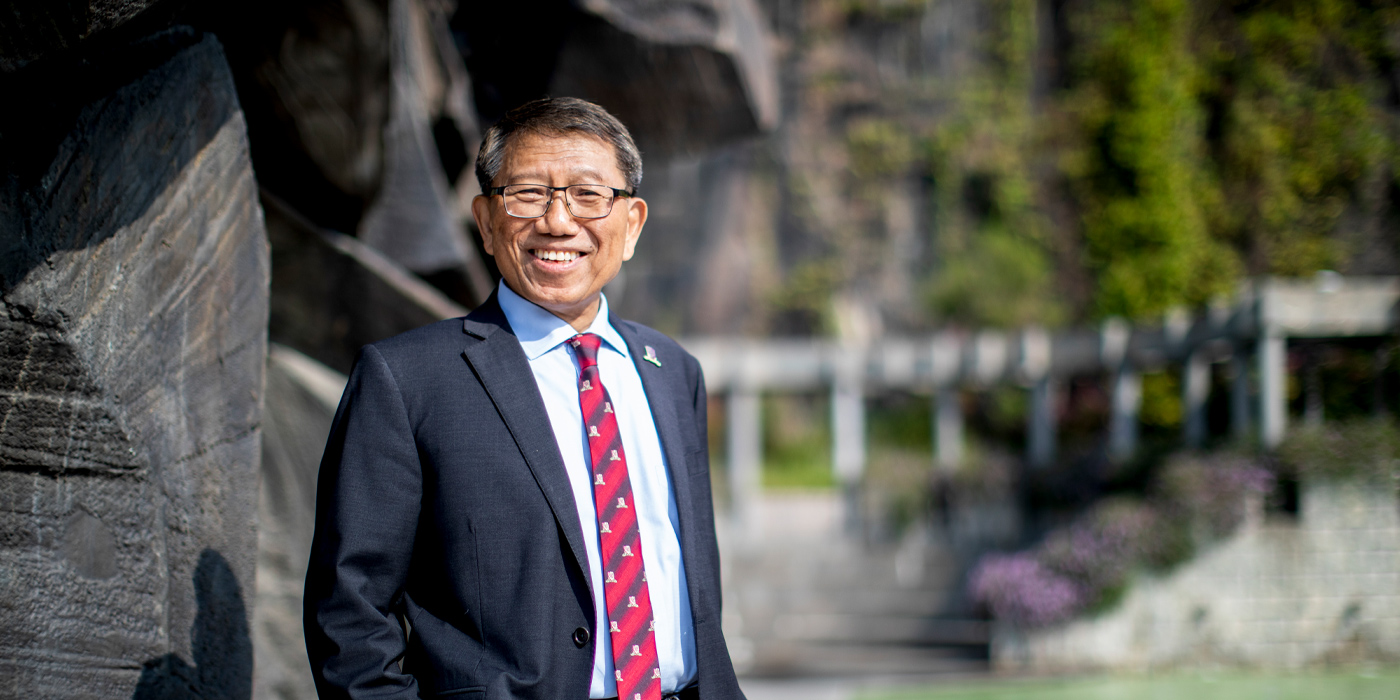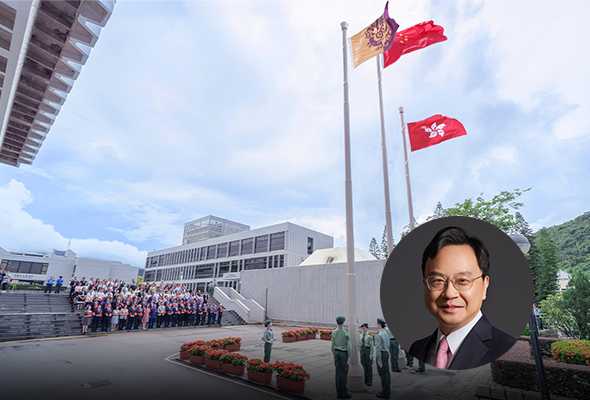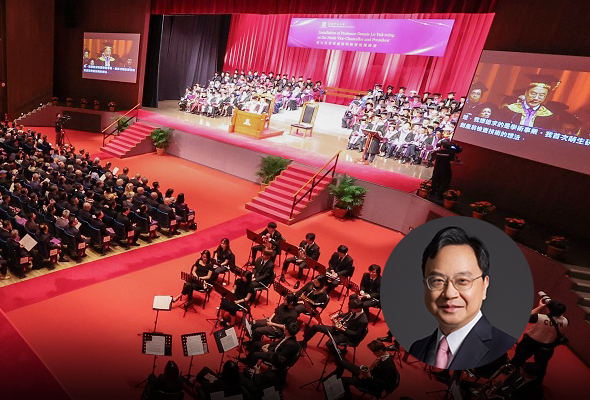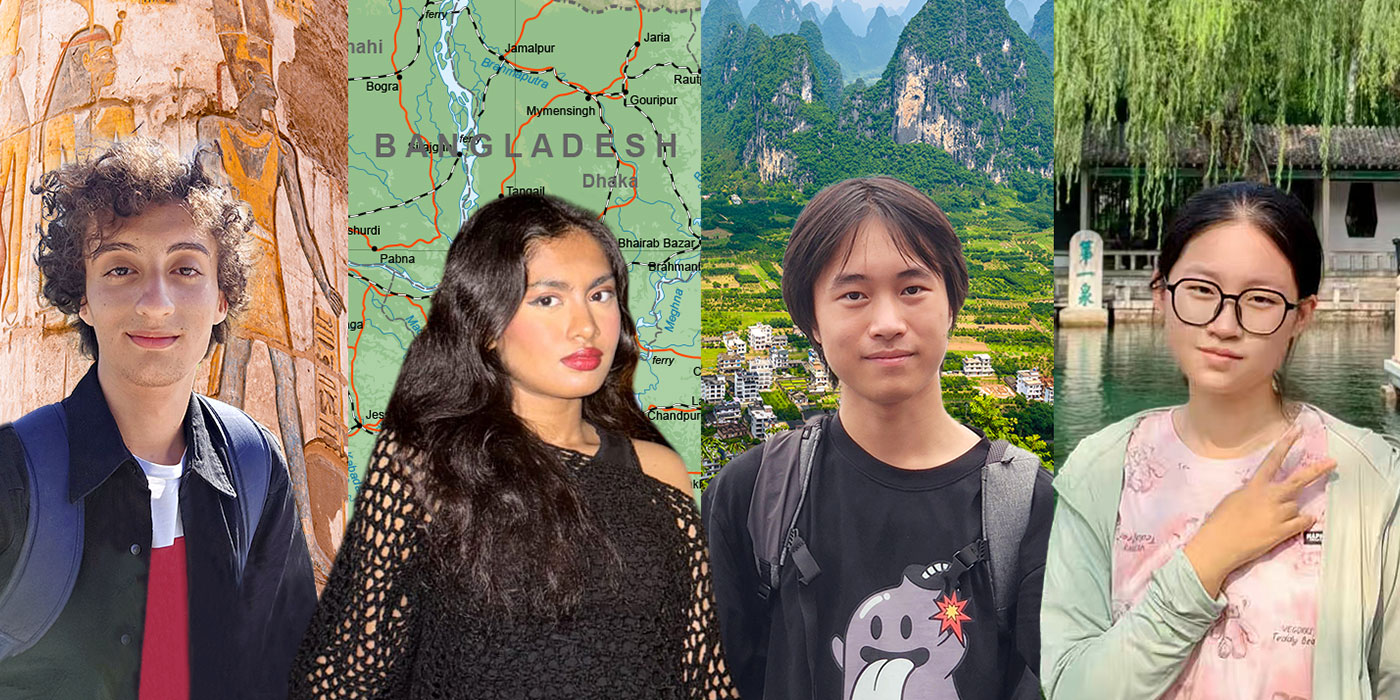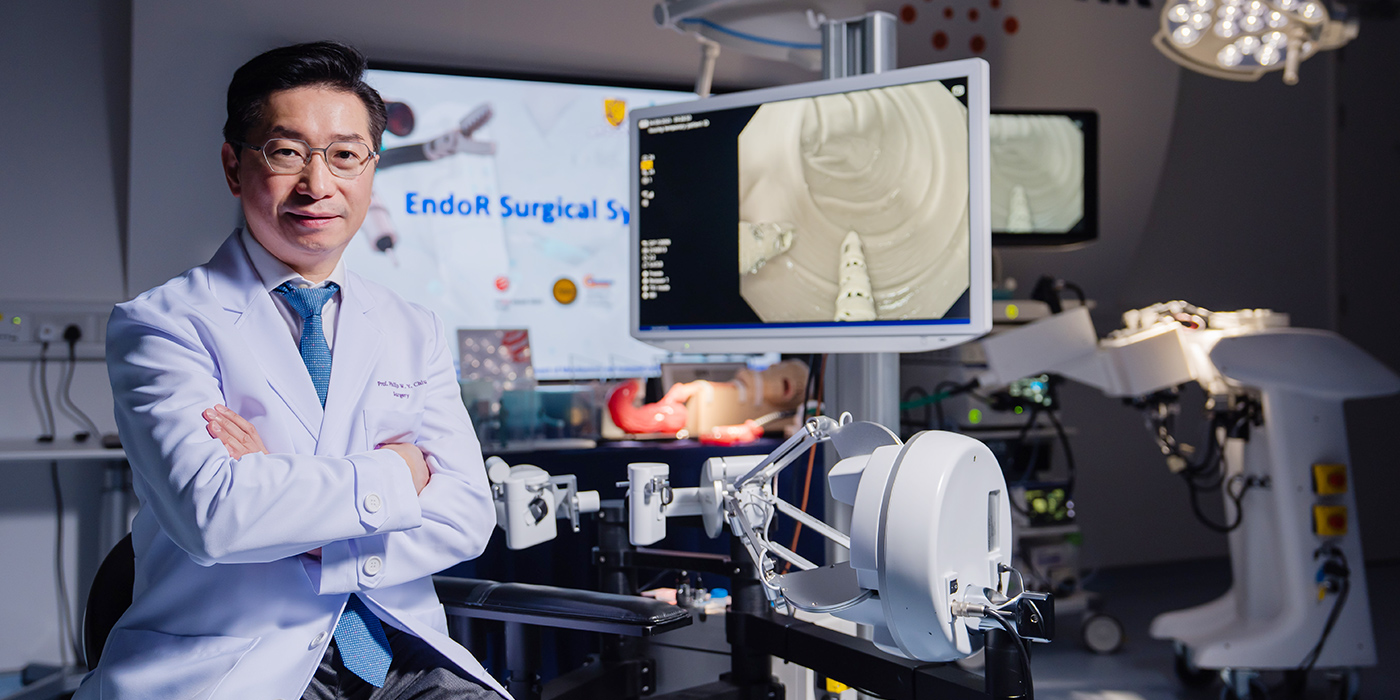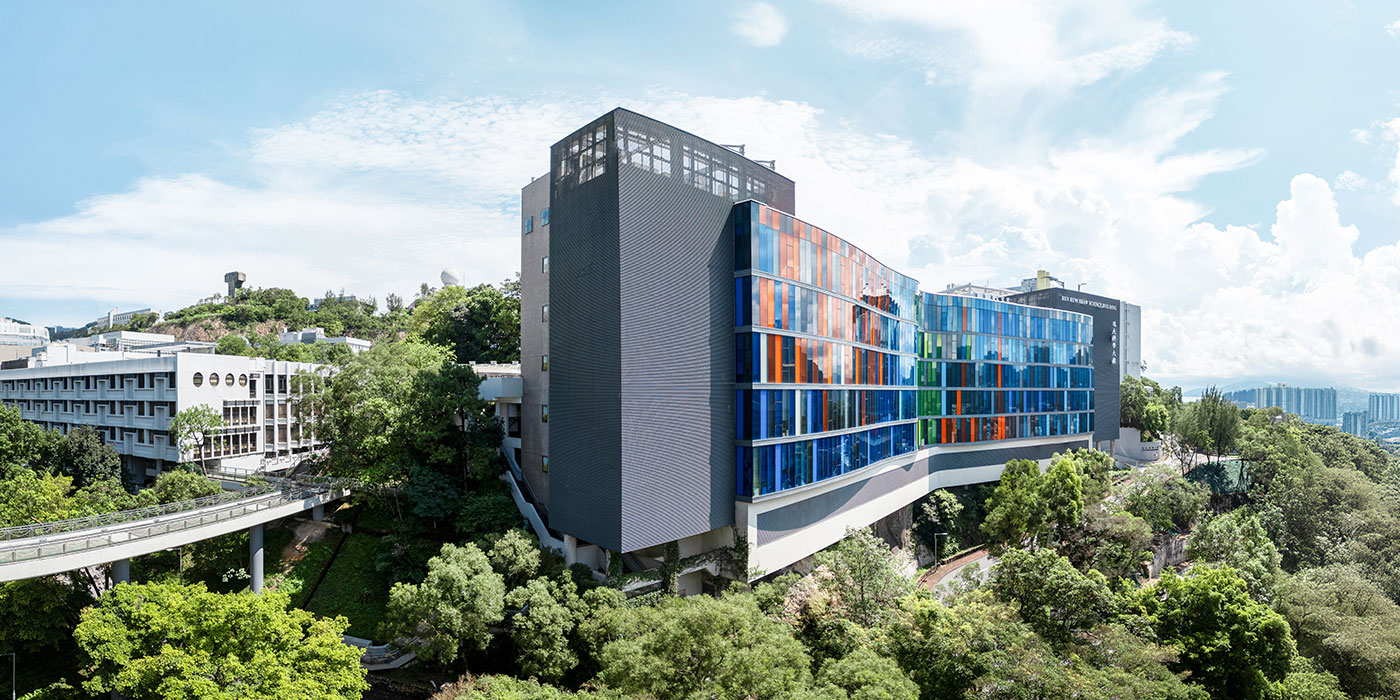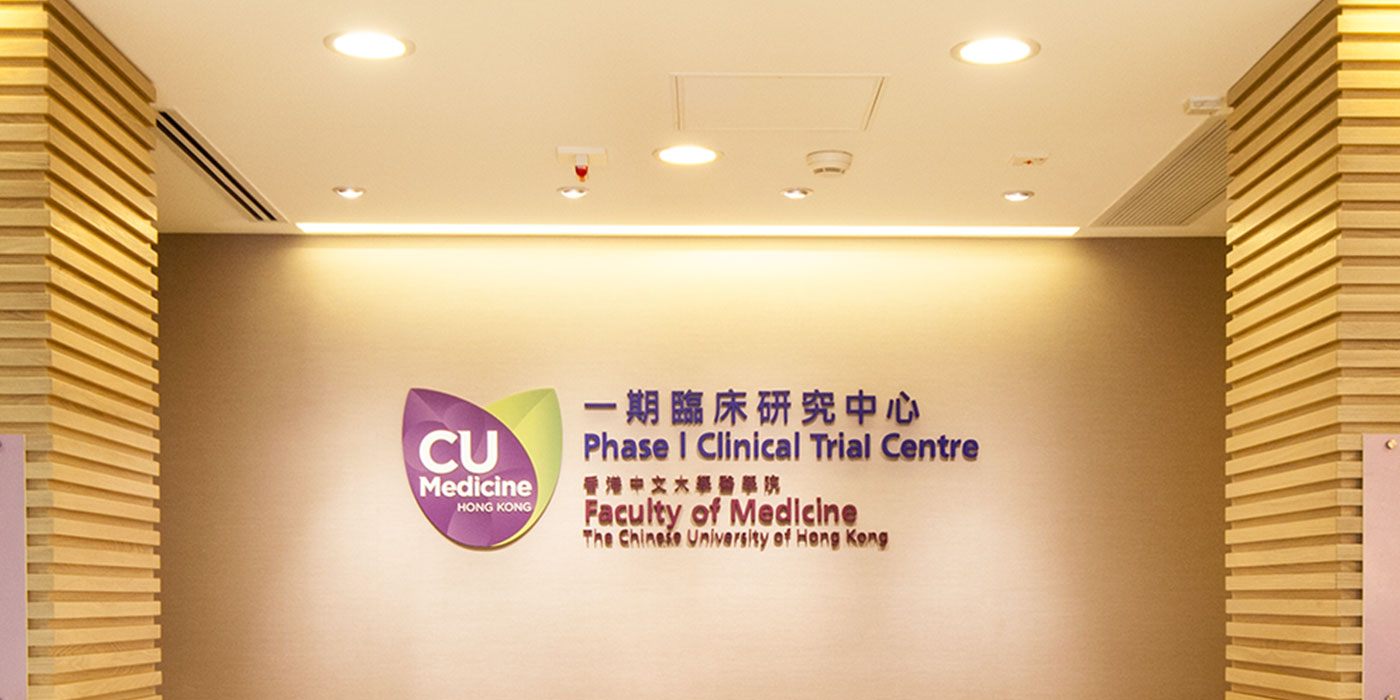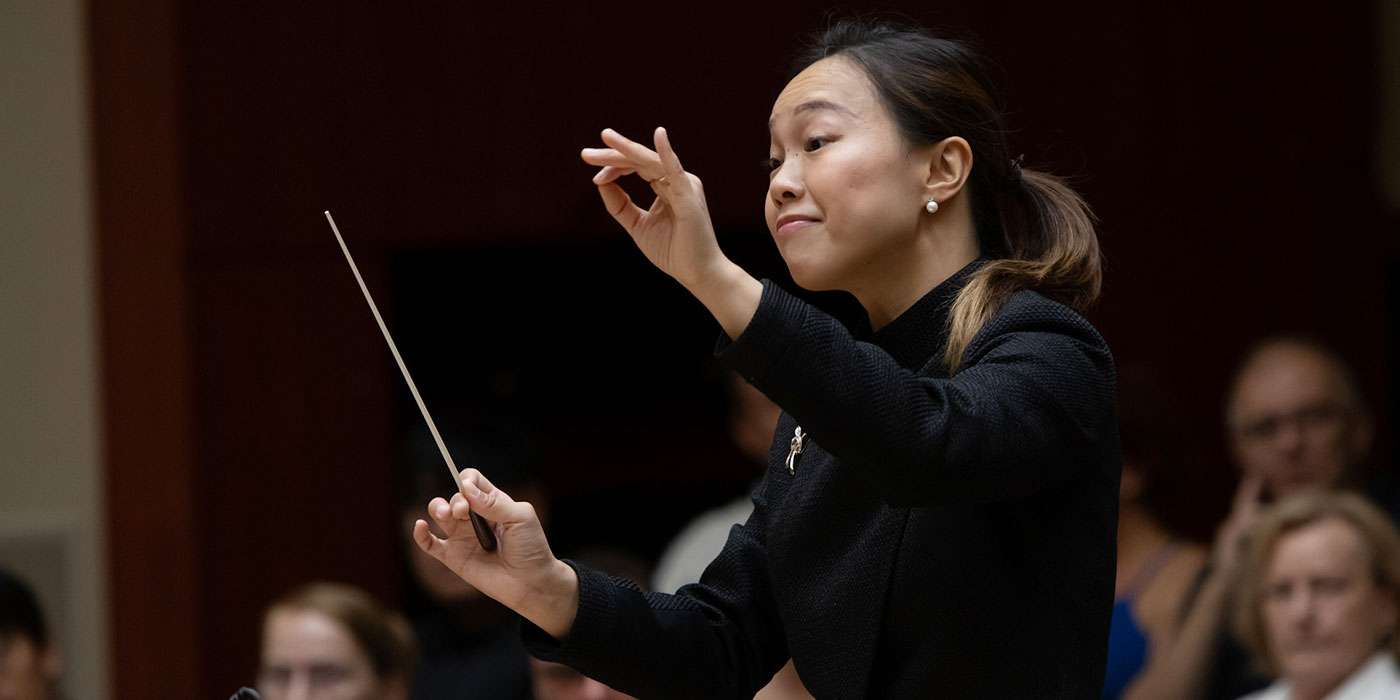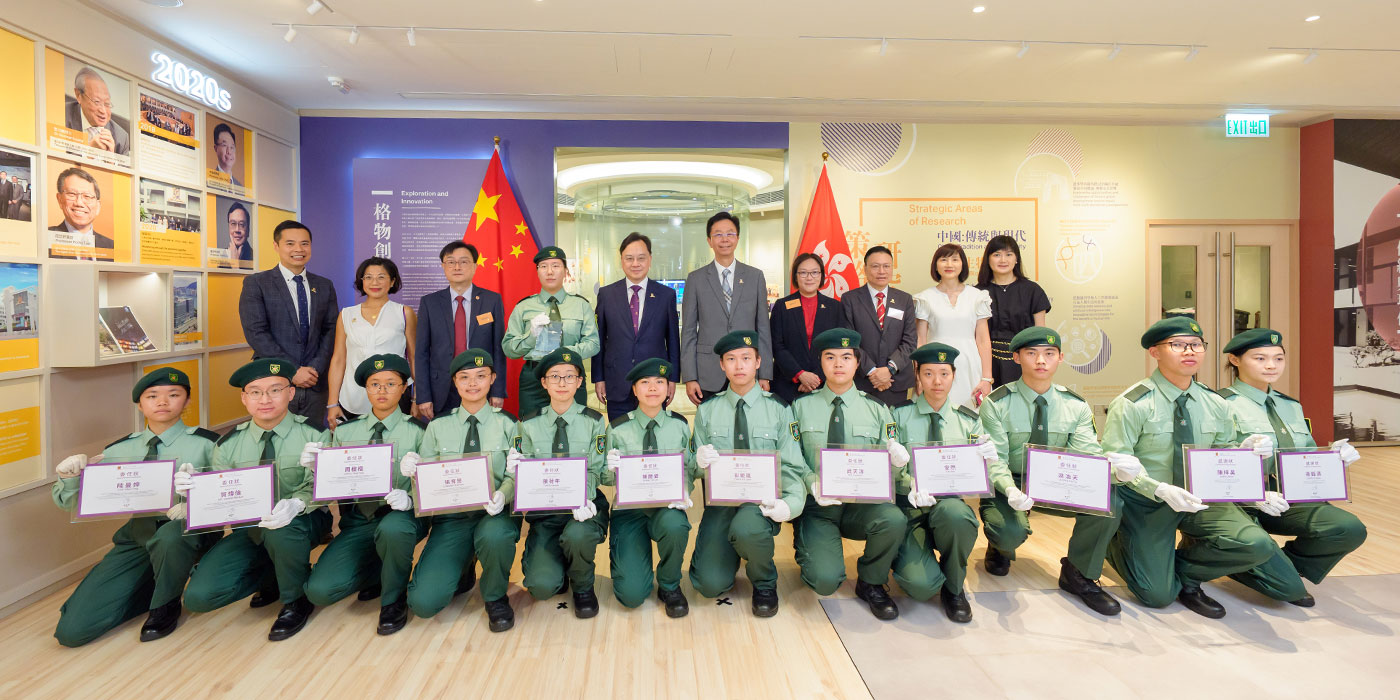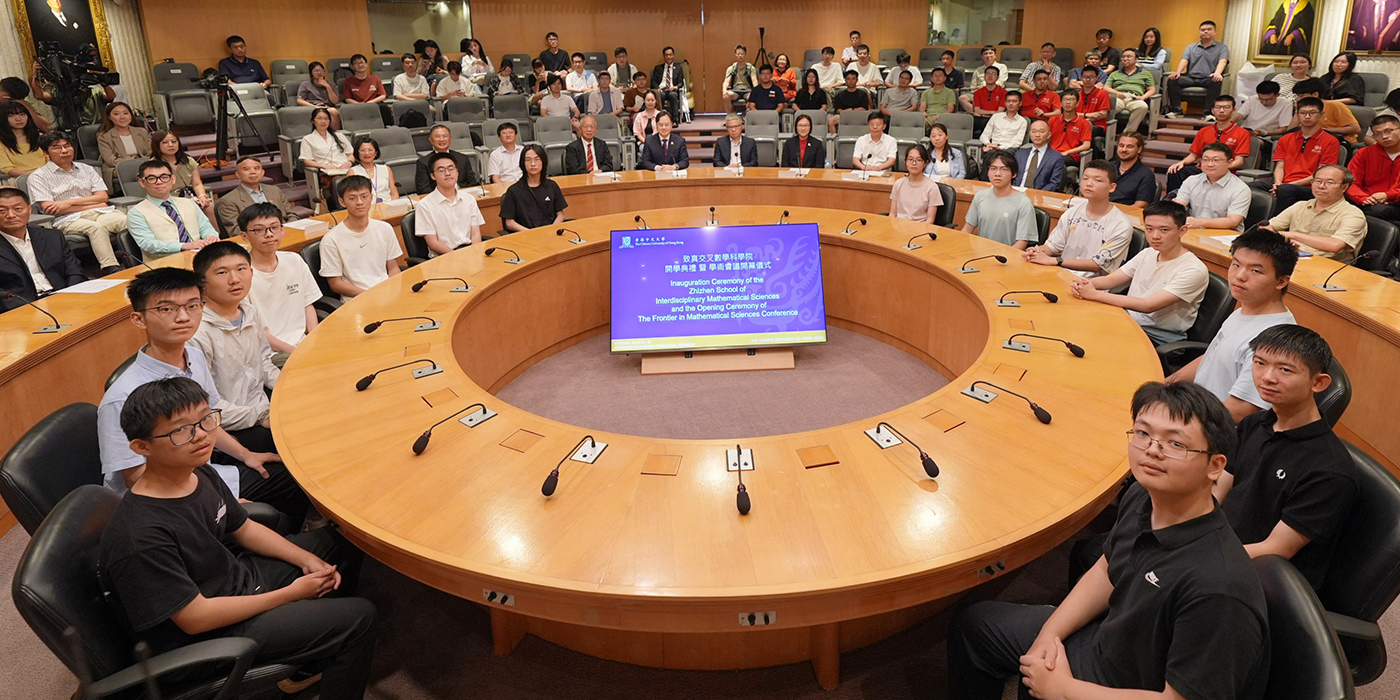The Rocky road of always moving forward
Reflections from the outgoing Vice-Chancellor
Hong Kong-born and raised Professor Rocky S. Tuan had a decision to make when he left to study in the United States: Should he aim to become a professional musician or a scientist? In his first year in college, a single incident determined that he should be a scientist, and Professor Tuan earned a PhD in Life Sciences. It was a path that ultimately brought him home to Hong Kong and CUHK.
Under Professor Tuan’s leadership, the University’s research community has scaled new heights in international rankings, while his baritone voice has scaled new lows through his passionate participation in campus choral performances.
Professor Tuan is stepping down on 7 January as CUHK’s eighth Vice-Chancellor and President. In an interview with CUHK in Focus, he looks back on seven memorable years at the helm of the University with which he fell in love.
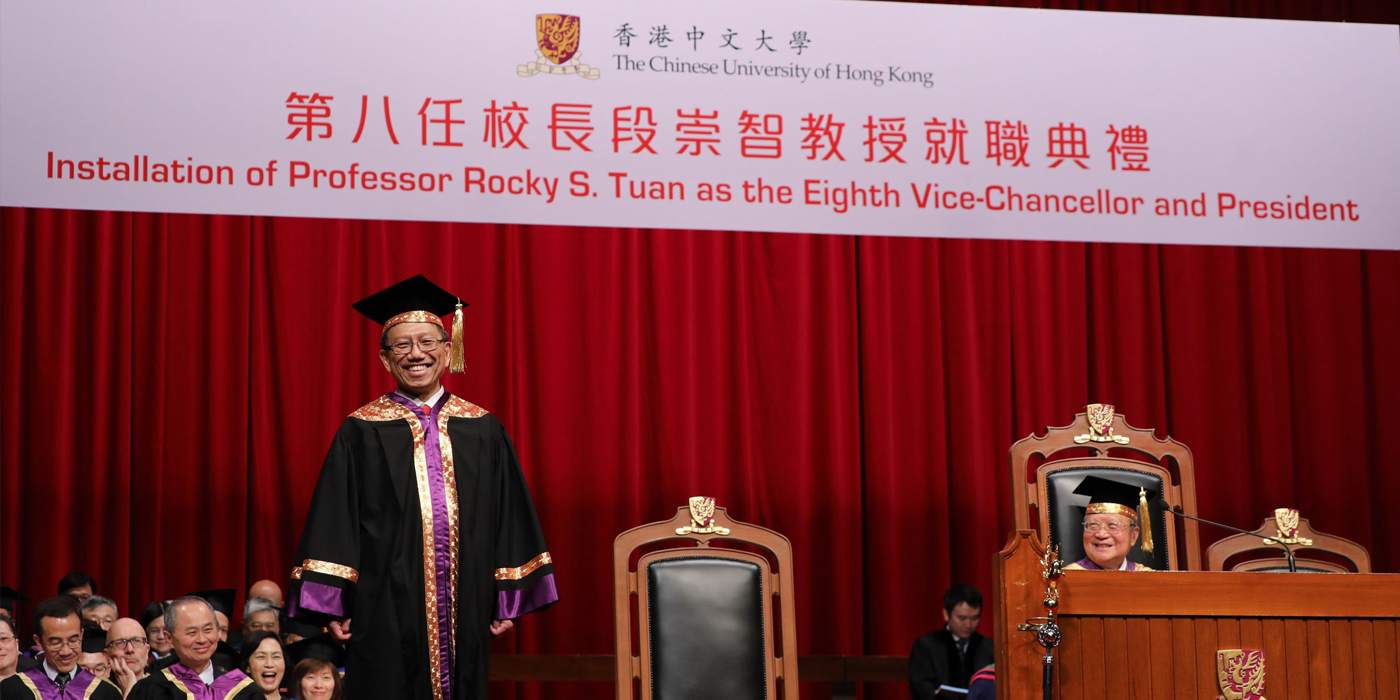
You enjoyed a successful research career in the United States. Why did you decide to come back to Hong Kong to lead CUHK in 2017?
I came from a modest background, but I was fortunate enough to have the opportunity to study abroad when I was young. My parents bought me a one-way ticket and that was my first time to travel by plane. When my mother saw me off at the airport, she said to me, teary-eyed: “When you achieve success in future, remember to come back to contribute to Hong Kong.” Her words have stayed with me to this day, and this was one of the reasons I returned.
After I completed my studies in the US, I stayed there to pursue teaching and research as there was not much opportunity in Hong Kong back then. I ended up staying there for several decades. Until more than ten years ago, a collaboration with the Hong Kong Research Grants Council gave me a chance to come back. I found that scientific research in Hong Kong had made significant progress. In 2016, I became a Distinguished Visiting Professor of CUHK and got to know the University more. It was like dating with CUHK – the first time felt good, and after a few more “dates”, I fell in love with it. When the opportunity came to be its Vice-Chancellor, I gladly accepted.
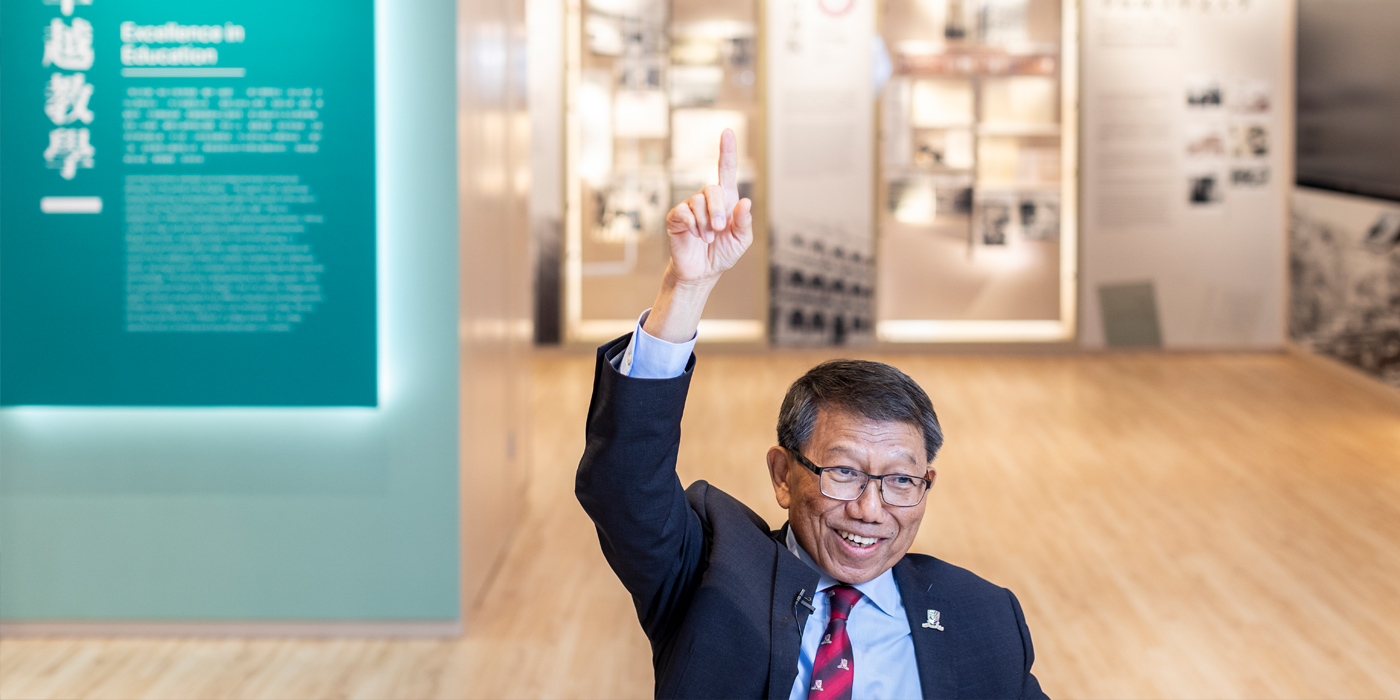
Among the many achievements of CUHK in your term, what are the ones that you most proud of?
A university has three missions: education, research and serving the community. I am proud of what CUHK has done with these three missions in the past three years.
In research, we have devoted ourselves to scientific innovation, especially in interdisciplinary research. For example, we established six InnoHK research centres in 2021 – covering health, biomedicine, mechanical engineering and artificial intelligence – which are transforming our world-class research efforts into tangible benefits for society.
In education and serving society, I am especially happy about the launch of Co-op@CUHK in 2022. The scheme is an academically accredited programme that puts students on full-time, paid work placements lasting for eight months. It means they are equipped with essential workplace skills to be more competitive in the job market. The scheme has been hugely popular among students and employers. This past year, students have even had the opportunity to work in the Greater Bay Area and other parts of Asia.
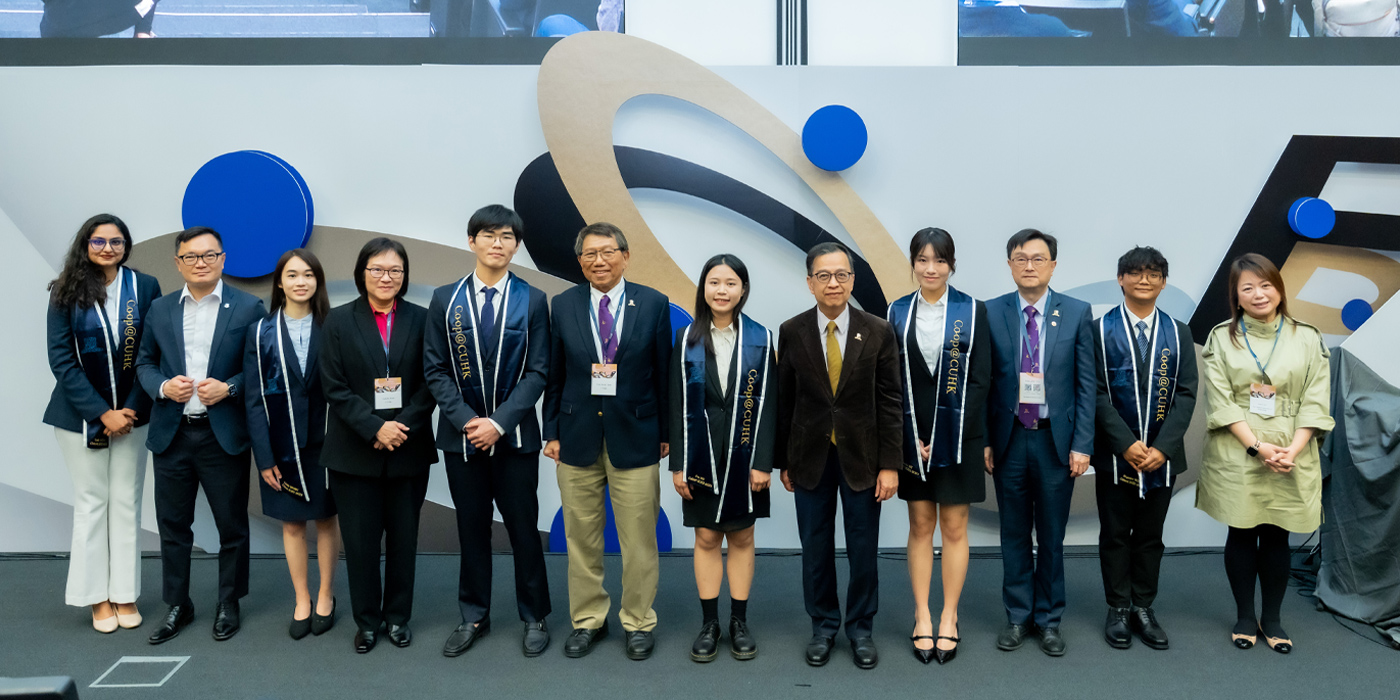
What is your most unforgettable experience at CUHK?
It would be our fight against COVID-19. The three-year pandemic brought us unprecedented challenges, but we got through it with determination and resilience. I am deeply touched by the spirit of CUHK. During the most critical period of the pandemic, we held emergency meetings three times a week to discuss how to cope with latest developments. Different units of the University worked closely with each other, arranging supplies and sanitising every corner of the campus. We also swiftly switched to online-mode teaching and transitioned to the hybrid-mode (online and face-to-face classes) as the situation eased. CUHK also launched a virtual exchange programme with our exchange partners, uploading video-recorded classes that are popular among students, and presented a virtual tour of the CUHK Art Museum, on top of other initiatives. These were valuable experiences, and I am also glad we achieved a very low infection rate on campus. I am grateful to all our staff.
To provide some support for CUHK students, new graduates and workers who had financial difficulties during the pandemic, we set up the CU Relief Fund. All seven pro-vice-chancellors and I donated some of our salaries as seed money.
While isolated at home, I found a little pleasure in rewriting the lyrics of classic songs, hoping to cheer up our colleagues and students. I sang and recorded them on my phone. Due to copyright restrictions, the tunes could not be shared publicly. But let me share, here, my rewritten lyrics for John Lennon’s Imagine.
Imagine there’s no virus
It’s easy if you try
Everyone’s back on campus
Laughing and saying hi
I also rewrote Oscar Hammerstein’s lyrics for Shall We Dance? (from The King and I) as Shall We Zoom?
So many boys and girls
They all want to go to school
It made me think we can do
Something new that is funShall we Zoom?
On a bright cloud of data shall we fly?Shall we Zoom?
Shall we be online with good Wi-Fi?
And for sure
When every byte and bit is allowed to fly
Shall we still be together
With PowerPoints and notes that matter
And courses covered
With lots of room
On the clear understanding
That this kind of thing can happen
Shall we Zoom?
Shall we Zoom?
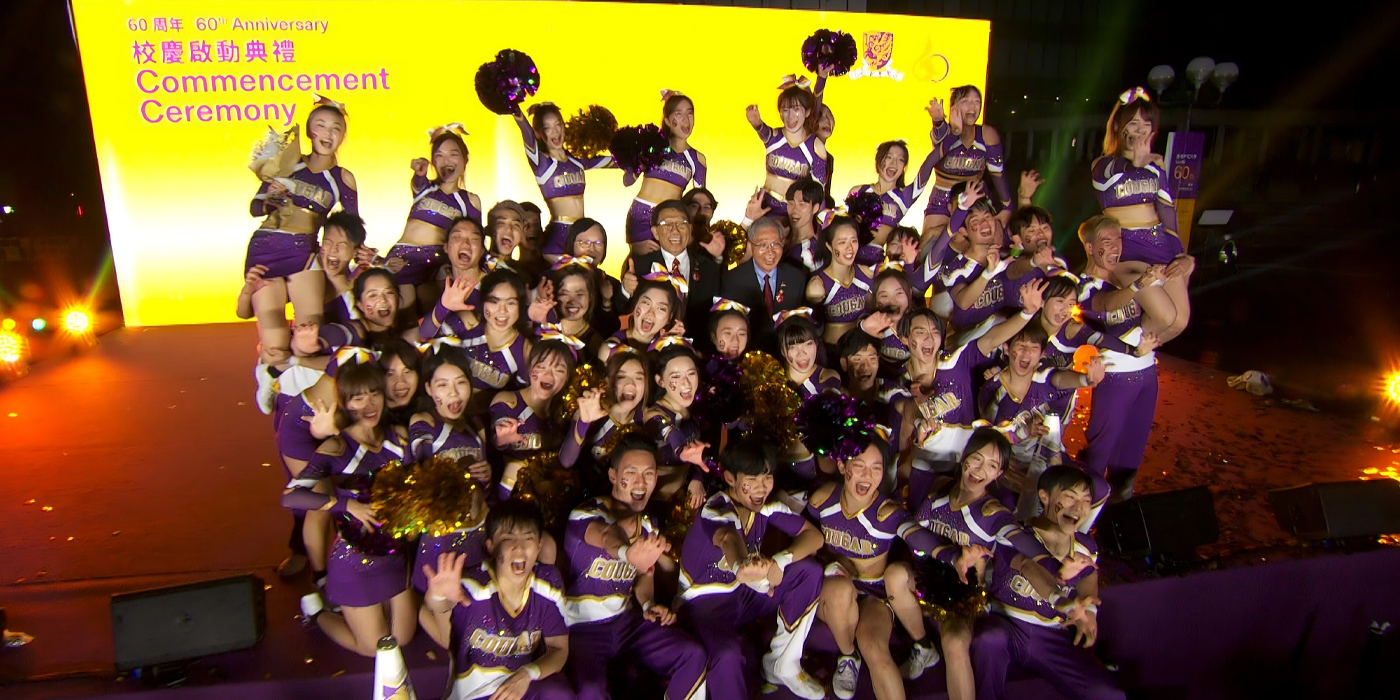
The 60th anniversary of CUHK was another precious memory. From February 2023, we organised a series of activities. The Diamond Jubilee University Presidents’ Forum was a highlight, bringing together leaders from leading universities around the world. In December the same year, we joined hands with Peking University (PKU) to convene the Sino-US University Presidents’ Dialogue for the first time. Leaders of higher education from the two countries got together to explore what we can do on global challenges in an era of geopolitical tensions. Our country attached high importance to the forum. Vice Minister of Education Chen Jie spoke as a special guest at the dialogue. The event has become a yearly activity – we held the second dialogue with PKU at the University of Chicago in September 2024.
I feel privileged to have led CUHK to its diamond jubilee and built a solid foundation for scaling new heights in the next decade.
You are a scientist, and you are also a passionate baritone. How did you make the choice between music and science? How do you see the relationship between the two?
When I was in Year One in Berea College in Kentucky, I took courses in chemistry, mathematics and music. I took vocal studies, composing, theory and production as electives and took part in many music activities. I really loved studying music, and I was an outstanding performer in the college choir. But making a living in the music industry was hard and highly competitive. Still, I didn’t want to give up. When I had to decide my major in the second semester, there was an audition on campus to get into a troupe, which would tour different US cities during the summer. I decided to have a go.
I said to myself, if I was selected, then it’s the will of God that I should choose music as my major. What should I sing? I am Chinese, so I chose a Chinese song called How Can I Help But Think of Her? In the end, I wasn’t selected. This meant I should not major in music. So, I chose chemistry and music became an interest.
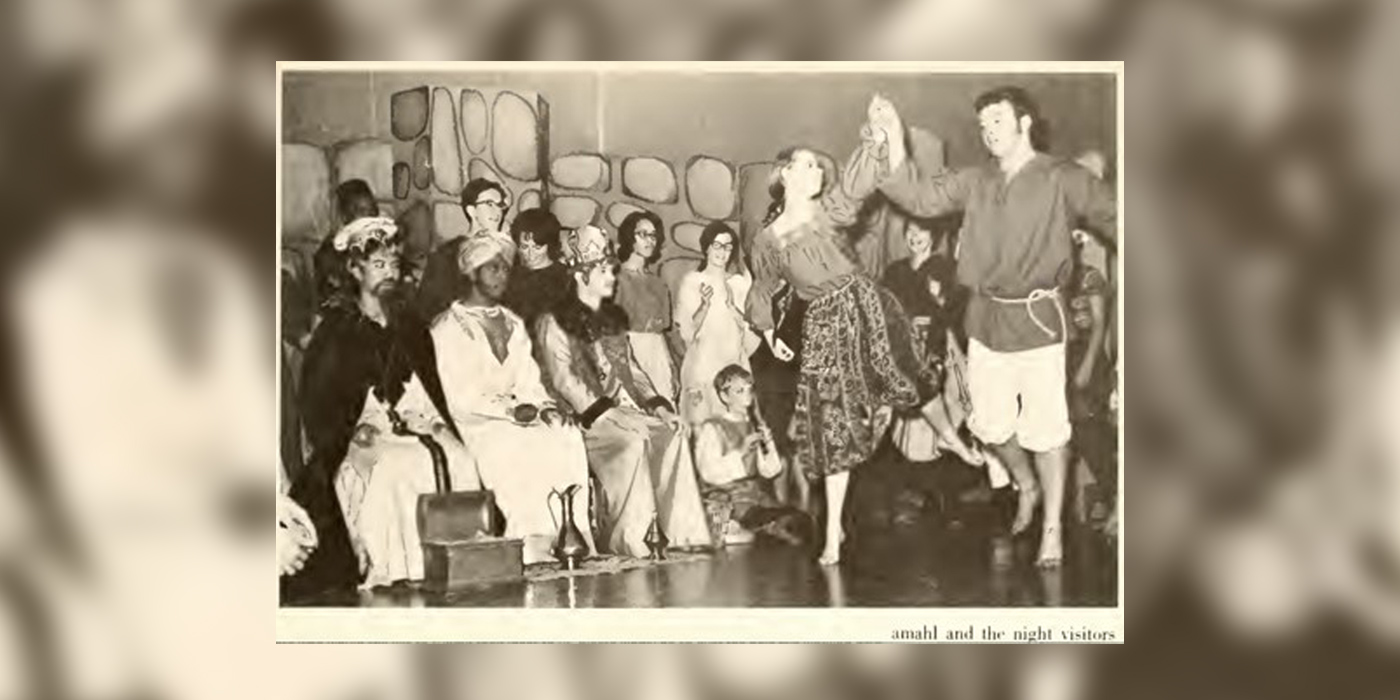
I would say that musical notes are like biological cells. When notes are organised in wisdom, they make a melodious piece. In a musical performance, participants bring out their best from diligent practice to achieve harmony. I pursue the same spirit in scientific research, where teamwork is important. Likewise, cells form a useful human tissue or organ through collaboration and division of work. As an African proverb goes, “If you want to go fast, go alone. If you want to go far, go together.” I believe this also applies to CUHK and society as a whole.
Who are your most memorable people at CUHK?
It’s our 300,000 alumni in Hong Kong and overseas, who are incredibly loyal and devoted to their alma mater. Colleagues at the Alumni Affairs Office tell me that we have direct contact information for 92% of our alumni so we can reach out to them by phone or email whenever we need. This high proportion is unbelievable for an international university and reflects the deep sense of belonging of our alumni. This kind of cohesion is probably unique to CUHK!
Our alumni also collaborate with us on many projects. I have regular meetings with the 12 members of the Global Alumni Advisory Board founded by me and now in its second year. They come from different years and fields and have given me valuable advice on the University’s strategic development. We also have the Distinguished Alumni-in-Residence Programme, which invites one to three alumni from here or overseas to come back and share their experience.
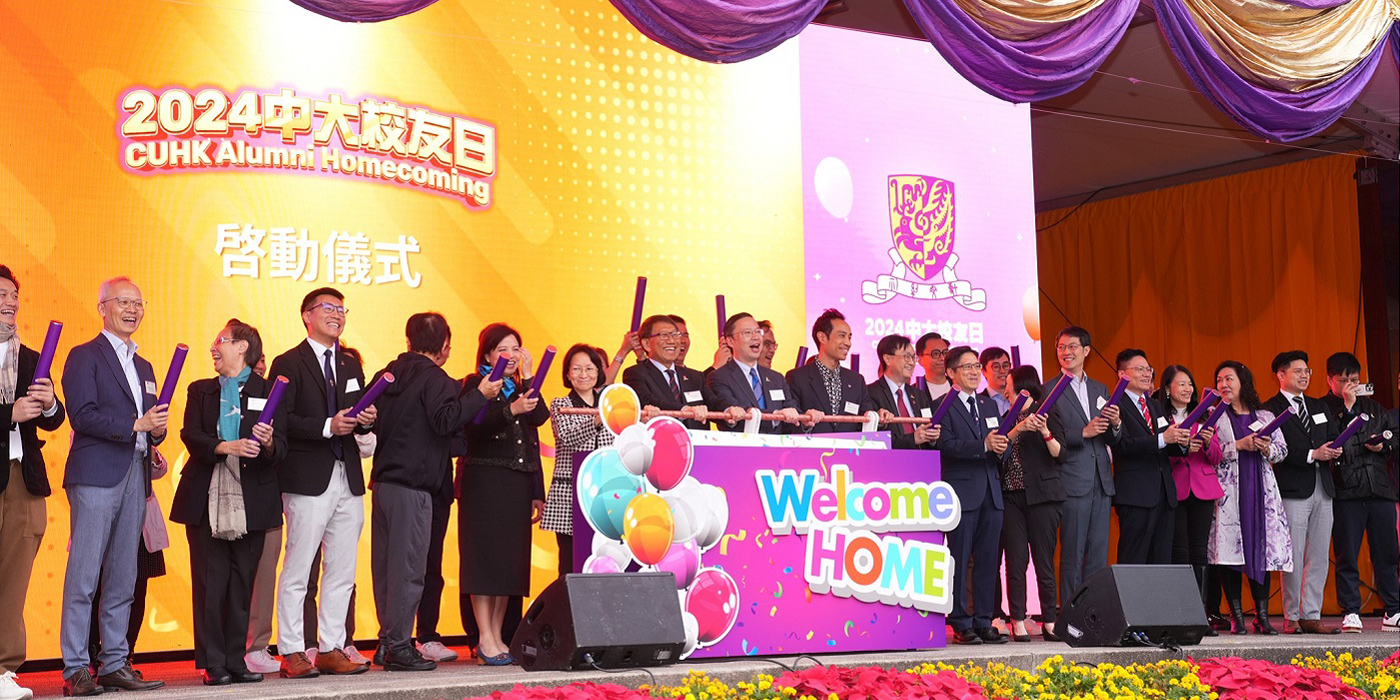
What are your plans after stepping down as Vice-Chancellor?
During my tenure as Vice-Chancellor, I have also served as Lee Quo Wei and Lee Yick Hoi Lun Professor of Tissue Engineering and Regenerative Medicine. I have been continuing my work in research and as editor of academic journals, as well as supervising six PhD students. After stepping down, I plan to continue these activities to stay updated on latest developments in academia. I will also take an academic sabbatical to visit overseas institutions, explore new projects and ideas.
I am honored to have recently been appointed as the APRU (Association of Pacific Rim Universities) Ambassador. In this role, I am committed to fostering the advancement of global higher education and enhancing research collaboration across the Pacific Rim.
I shall remain focused on research in stem cells and regenerative medicine. Currently, I am involved in several projects. One is on peripheral nerve repair, another on spinal nerve research, supported by the Innovation and Technology Commission.
A third project, related to pain management, is part of the work at the Peter Hung Pain Research Institute. We are studying the causes of nerve growth factors in cartilage, with the hope of applying the findings to treat other pain conditions. Osteoarthritis patients experience pain due to the erosion of cartilage tissue. Cartilage itself usually lacks nerve cells—so why does it hurt? It turns out that when cartilage is depleted, it secretes nerve growth factors, which attract nerve cells to the area. This is something I discovered over a decade ago. If we can block the production of these factors, we could relieve or even kill pain, which would be extremely important for patients and significantly improve their quality of life.
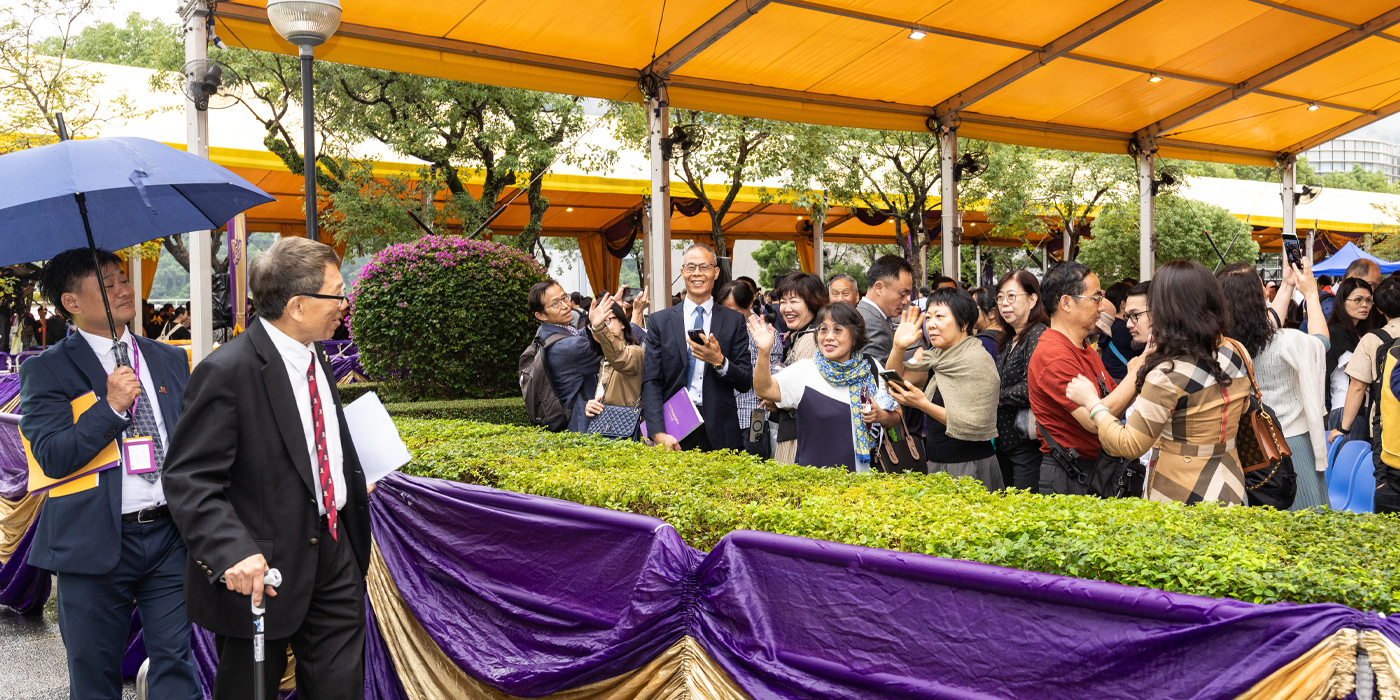
How would you like students and staff to remember you? Do you have any words of advice for them?
I value traditional Chinese values despite my long years living overseas. I chose Rocky as my English name because it sounds similar to 樂克 (le ke in Mandarin), which is my alternative first name given by my family from the time I was born. Loyalty, honesty and trust are my guiding principles in life. Once I have made a promise and set a goal, I will remain loyal and steadfast no matter what. As the protagonist in the Rocky Balboa movie says: “It ain’t about how hard you’re hit, it’s about how you can get hit and keep moving forward.” Honesty is a virtue my parents taught me by example. Don’t lie, accept reality, don’t deceive yourself or others. Trust means believing in others –and keeping your promises. While I may not always be able to uphold them perfectly, I try my best.
My words for CUHK people: I am delighted to see that CUHK has achieved record-high rankings in three major global university rankings this year. This is the result of our collective effort and teamwork. I sincerely thank all members of the CUHK community, including students, faculty and staff, especially the alumni, who carry forward CUHK values and spirit in the serve society in various fields. I wish all of you good health and success in your endeavours.
By Gary Cheung, Joyce Ng and Eva Choy
Photos by LCT

